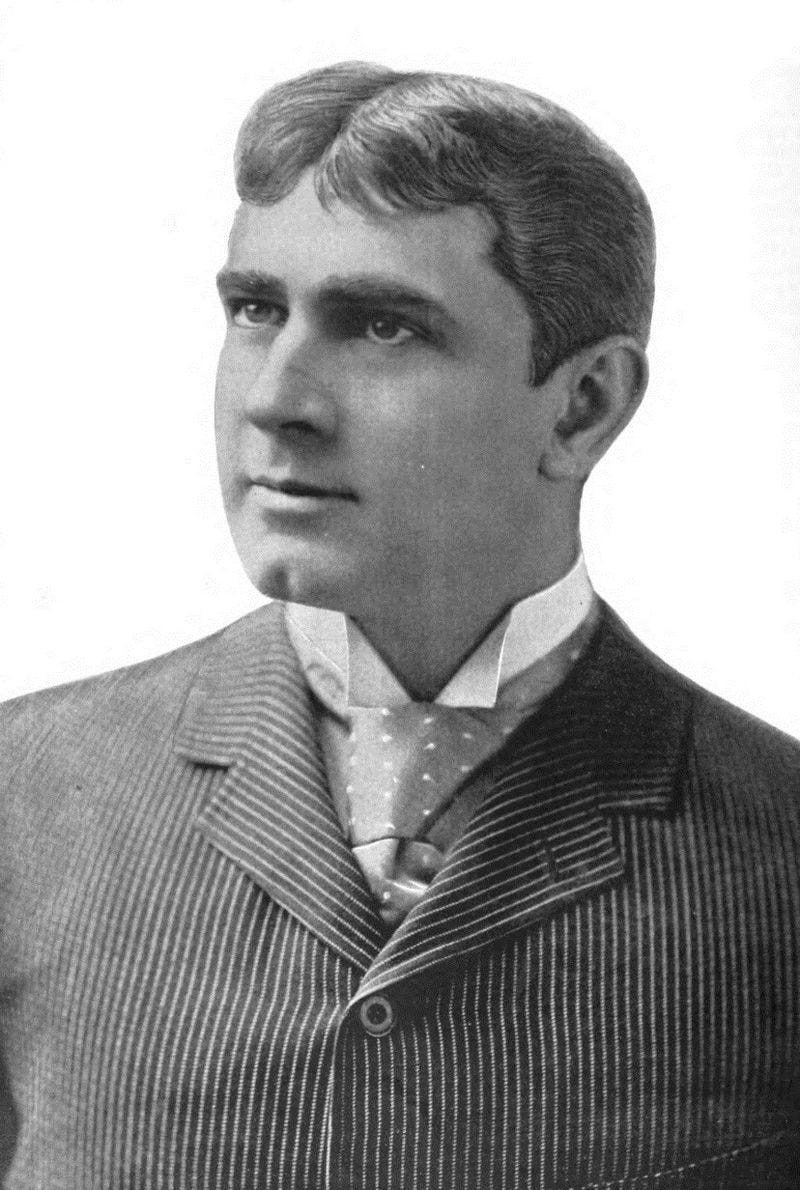In the first few months of the Astaires’ arrival in Manhattan, three significant deaths in the theatrical profession occurred. On March 26, matinee idol Maurice Barrymore died in Amityville, Long Island at age 56. His children Lionel (age 26), Ethel (25) and John (23) had already embarked on their theatrical careers. Fred recalled seeing Ethel on stage during his first years in New York (Astaire 18), and the Astaires would appear on four benefit bills with her starting 15 years later.

On April 23, the beloved actor Joseph Jefferson, who had made a career portraying Rip Van Winkle on stage and in early silent films, died in Palm Beach, Florida. Multi-page obituaries filled the theatrical publications, such as the New York Dramatic Mirror (“Death of Joseph Jefferson”; “Jefferson”) and The Theatre (“Joseph Jefferson - A Great Actor Gone”), followed by lengthy descriptions of his funeral, including details of the progress of the train bearing his casket up the East Coast through cities decked out in mourning all along the way (“Funeral of Joseph Jefferson”; “Joseph Jefferson Is Buried at Sandwich”). According to theater lore, when in 1870 Jefferson went to the Episcopal Church of the Atonement requesting a funeral for his fellow actor George Holland, the rector refused because of the ill-repute of the acting profession but referred Jefferson to “a little church around the corner where it might be done”: The Church of the Transfiguration at 1 E. 29th St. A stained-glass window installed in 1925 in the south wall of the main church depicts Jefferson in his guise as Rip Van Winkle leading the enshrouded Holland. Fred was confirmed in the church by the Rev. Randolph Ray (Astaire 34), who in 1923 founded the Episcopal Actors Guild at what is still known as “The Little Church Around the Corner.” Jefferson’s children and grandchildren continued in the theater, and in December 1912 Fred and Adele performed on vaudeville bills with son Joseph W. Jefferson in Denver and Des Moines.


Less than a month after old Joseph Jefferson’s death, the theatrical world was rocked by the death of young Sam Shubert on May 13, after a horrific train accident in Pennsylvania (“Samuel S. Shubert Dead”; “Sam S. Shubert Dies A Victim of the Wreck”). Shubert had come to Manhattan from Syracuse just five years earlier, leasing the Herald Square Theatre, the first venue in what would eventually become the country’s largest theater empire. Sam’s brothers Lee and J.J. would take over for Sam, and in 12 years they would sign the Astaires to the first of their Broadway shows, Over the Top (1917) and The Passing Show of 1918. Fred’s last Broadway show, The Gay Divorce, would close at the Sam S. Shubert Theatre on 44th Street on July 1, 1933.

SOURCES
Astaire, Fred. Steps in Time. New York: Harper & Brothers, 1959.
"Death of Joseph Jefferson." New York Dramatic Mirror 29 April 1905: 7-8.
"Funeral of Joseph Jefferson." New York Dramatic Mirror 6 May 1905: 11.
"Jefferson." New York Dramatic Mirror 29 April 1905: 12.
"Joseph Jefferson - A Great Actor Gone." Theatre Magazine June 1905: 139.
"Joseph Jefferson Is Buried at Sandwich." New York Times 1 May 1905: 9.
"Sam S. Shubert Dies A Victim of the Wreck." New York Times 13 May 1905: 2.
"Samuel S. Shubert Dead." New York Tribune 13 May 1905: 3.



